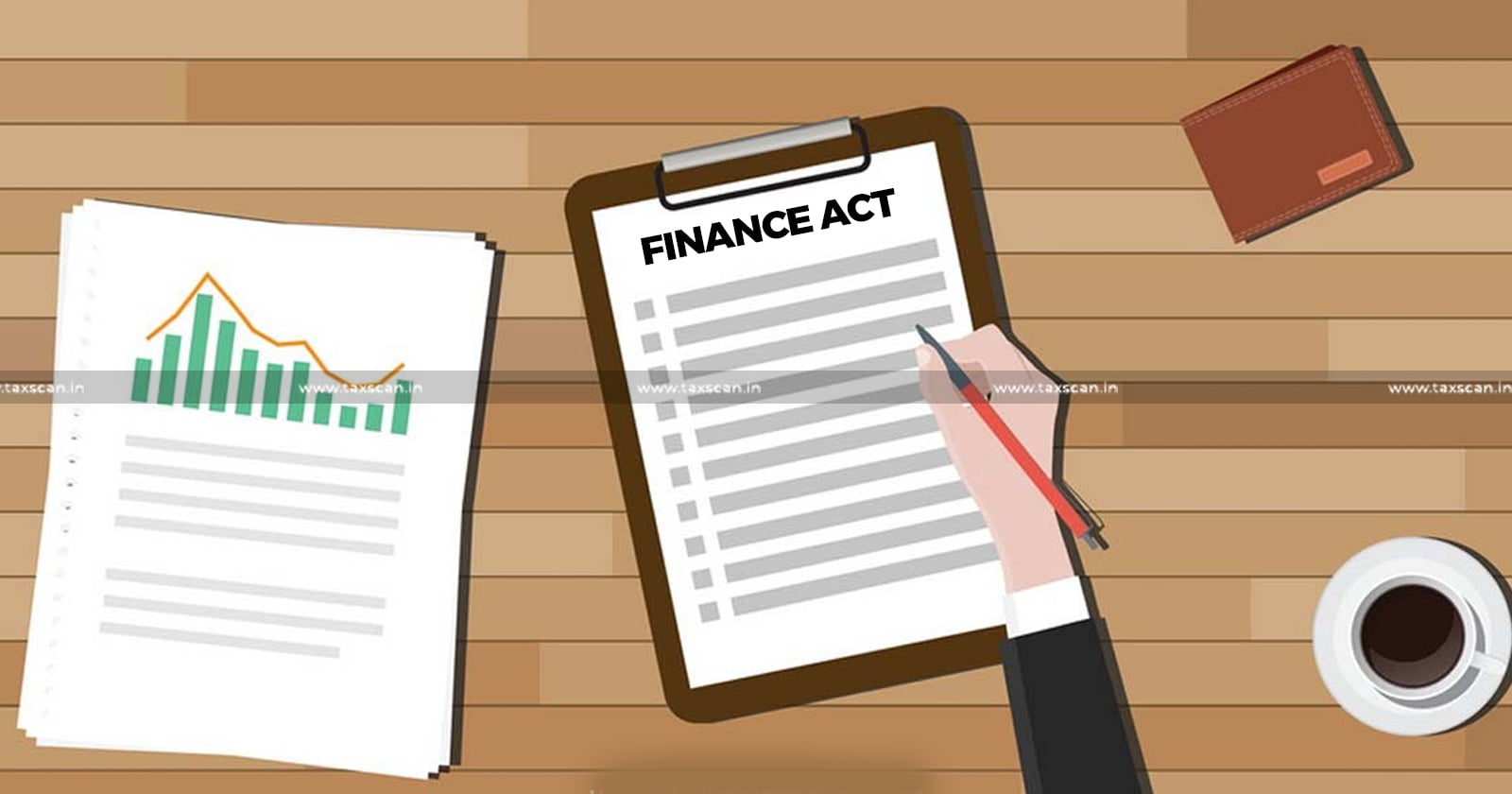Central Government notifies Finance Act, 2025: Key Updates Here
The Finance bill was passed in Lok Sabha on 25th March 2025.

The Ministry of Law and Justice has officially notified the Finance Act 2025. It introduces major changes to income tax rates for the financial year 2025-2026. The Finance bill was passed in Lok Sabha on 25th March 2025.
Here are the key highlights:
Changes in Income Tax Rates: A new tax rate of 25% has been introduced under the new tax regime where those who have income between Rs. 20L to Rs. 24L per year have to pay 25%. And there will be no income tax for the income upto Rs. 4L.
Know How to Prepare Estimation and Viability for Project Reports? Know more Click here
New Tax Slab:
| Income Range | Tax Rate |
| Up to 4,00,000 | Nil |
| From Rs. 4,00,001 to Rs. 8,00,000 | 5% |
| From Rs. 8,00,001 to Rs. 12,00,000 | 10 % |
| From Rs. 12,00,001 to Rs. 16,00,000 | 15% |
| From Rs. 16,00,001 to Rs. 20,00,000 | 20% |
| From Rs. 20,00,001 to Rs. 24,00,000 | 25% |
| Above Rs. 24,00,0001 | 30% |
From the new financial year, individual taxpayers with a net taxable income of up to ₹12 lakh will have zero tax liability. This is made possible by a tax rebate of ₹60,000. Earlier, until March 31, 2025, the rebate was limited to ₹25,000 for incomes up to ₹7 lakh.
Changes in TDS Thresholds
The Act also increases the Tax Deducted at Source (TDS) threshold limits for various categories, providing relief to taxpayers. Key adjustments include:
- Interest on Securities (Section 193): Increased from ₹10,000 to NIL.
- Interest other than on Securities (Section 194A): Increased from ₹40,000 (or ₹50,000 for senior citizens) to ₹1,00,000 for senior citizens and from ₹5,000 to ₹10,000 for others.
- Dividends (Section 194): Raised from ₹5,000 to ₹10,000.
- Rent (Section 194-I): Increased from ₹2.4 lakh annually to a monthly threshold of ₹50,000
Insertion of new section 44BBD: This is the special provision for computing profits and gains of non-residents engaged in business of providing services or technology for setting up an electronics manufacturing facility or in connection with manufacturing or producing electronic goods, article or thing in India.
Complete Ready to Use PDFs of 200+ Agreements Click here
Omission of Section 206AB and 206CCA : These two sections were omitted to avoid blocking of capital and reduce the compliance burden for the deductor/collector. Under Section 206AB, taxpayers are required to deduct TDS at higher rates when making payments to individuals or entities that have not filed their income tax returns in the previous financial year. Similarly, Section 206CCA mandates the collection of TCS at higher rates from buyers who have failed to comply with return filing.
Insertion of new Section 285BAA of the Income-tax Act : This is the provision for Obligation to furnish information on transaction of crypto-asset. According to this provision, any person, being reporting entities dealing with crypto-assets, are required to submit transaction details in a prescribed format and manner to the designated income-tax authority within a specified timeline. If the statement is found defective, the authority may notify the entity, granting 30 days (or more, if allowed) to rectify it. If they fail to rectify, it will be treated as furnishing inaccurate information.
If an entity fails to submit the required statement on time, the income-tax authority can issue a notice demanding compliance within 30 days. In addition, if inaccuracies are later discovered in the submitted statement, the entity must inform the authority and provide corrected details within 10 days.
The Central Government has the power to issue rules mandating the registration of reporting entities, specifying the information to be maintained, and providing due care on procedures for identifying crypto-asset users or owners. "Crypto-asset" is defined under Section 2(47A)(d) of the Income Tax Act.
The new Finance Act has several additional amendments, including changes to indirect taxes. Additionally, key adjustments have been made to customs tariff rates.
GST Compliance Calender from 1-03-2025 to 31-03-2026 Click Here
To Read the full text of the Order CLICK HERE
Support our journalism by subscribing to Taxscan premium. Follow us on Telegram for quick updates


